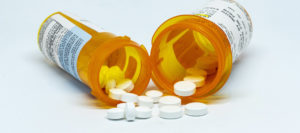Anxiety: How Self-Medication Leads to Substance Use Disorder
Northstar Recovery CenterPHP and IOP Addiction Treatment in Massachusetts
It is completely natural to feel anxious on occasion. If you are starting a new job, taking a test, or facing an important decision, there’s a good chance you feel some anxiety. However, if you are constantly weighed down by anxiety, you might suffer from an anxiety disorder.
There are a number of healthy ways to deal with anxiety, including seeking proper medical care. However, some people don’t know how to cope with the difficult feelings and emotions they are faced with. This can lead them to self-medicate with drugs and alcohol.
How can self-medicating lead to substance abuse?
Let’s take a look at everything you need to know.
What Is Anxiety?
Everyone experiences anxiety sometimes and anxiety is actually your body’s natural response to feelings of stress. However, extreme feelings of anxiety that interfere with your life and last longer than six months are often defined as having an anxiety disorder.
Anxiety disorders occur when a person feels anxiety in an intense and even debilitating way. There are a number of different disorders that are classified as anxiety disorders, including obsessive-compulsive disorder, post-traumatic stress disorder, social anxiety disorder, and generalized anxiety disorder.

Some of the symptoms of anxiety disorders include:
- Irritability
- Anticipating the worst
- Feelings of apprehension
- Upset stomach or nausea
- Twitches or tremors
- Diarrhea or frequent urination
If anxiety is making it difficult for you to function in your everyday life, it’s important to seek help. There are a number of treatment options for anxiety including medication, therapy, and lifestyle changes.
There are a number of healthy coping mechanisms for anxiety that you can use if you are faced with anxious feelings. These include getting enough sleep, staying physically active, eating healthy foods, and practicing breathing techniques.
What Is Self-Medication?
Alcohol and substances change the way that people feel, and many people will turn to drinking alcohol or drugs in order to cope with anxiety. While doing so might temporarily bring relief, it can lead to addiction and cause negative mental and physical health problems.
If you are trying to manage symptoms of anxiety or other mental health issues with drugs and alcohol, it’s known as self-medicating. This can end up exacerbating the problems that you were initially trying to cope with.
How Does Self-Medication Lead to Substance Abuse?
There have been studies that suggest that people with anxiety disorders are more likely to use alcohol or substances. People who suffer from anxiety often try to find relief from overwhelming feelings. In some cases, they might turn to alcohol and/or drugs.
While these might bring temporary relief, using substances usually always comes with a crash of some sort and a return to reality. This can lead people to start using their substance of choice more and more in order to escape the negative emotions and feelings. Some substances also have accompanying drug withdrawals that can range from extremely uncomfortable to life-threatening.
On top of that, many substances, including alcohol, are addictive. People can grow to become psychologically and physically dependent on the substances they use. Even if they want to stop taking drugs or drinking, they are compelled to continue use because of this dependence.
What Drugs Do People Use to Self-Medicate for Anxiety?
Different individuals might focus on different drugs when it comes to self-medication for anxiety. Let’s take a look at some of the more common choices and why people might use these to reduce their anxiety symptoms.
Alcohol
Perhaps the most common way that people self-medicate is with alcohol. Alcohol is widely available and much more socially acceptable than other drugs. While alcohol is a depressant and therefore can worsen symptoms of anxiety, for a brief period of time it can help to relax feelings of stress and anxiety.
Prescription Drugs
Individuals might also use prescription drugs in order to self-medicate their anxiety. These might be obtained legally with a prescription or illegally.
 One of the most widely prescribed medications for anxiety is benzodiazepines. While they can be effective for reducing anxiety symptoms, they are also quite addictive. The causes of benzo abuse are similar to those of opioids, cannabis, and GHB addiction.
One of the most widely prescribed medications for anxiety is benzodiazepines. While they can be effective for reducing anxiety symptoms, they are also quite addictive. The causes of benzo abuse are similar to those of opioids, cannabis, and GHB addiction.
Common benzos include Valium and Xanax. Individuals might also take opioid pain killers or other prescription drugs in order to self-medicate for their anxiety.
Recreational Drugs
People also use recreational drugs as a form of self-medication. For anxiety, a more common recreational drug is cannabis. While this drug has become more socially acceptable as the legal status has changed in a number of states, dependence on cannabis is not something to be taken lightly.
If you have developed an addiction to drugs, it’s important to know that there is help for you. You can learn about the benefits of a 12-step addiction program here.
Is It Time for You to Get the Help You Need?
Self-medicating for anxiety isn’t a long-term solution. In fact, it can exacerbate mental health conditions and come with a number of other serious consequences. If you are suffering from feelings of anxiety, the best course of action is to seek proper treatment.
However, if you have already gone down the road of self-medication, you will also need to seek treatment for your substance use. At Northstar Recovery Center, we aim to be a guiding light on your journey to recovery. Offering both a PHP program in MA and IOP programs in MA, we can help you find the recovery program you need to get your life back on track.
Is it time for you to break free from your addiction? If so, contact us today!
WHO WE ARE
Northstar Recovery Center in Southborough, MA is made up of a team of experienced, dedicated, and compassionate addiction treatment professionals. We want to see our community heal from the effects of the opioid epidemic, alcohol addiction, and other substance use disorders.
Day Treatment Program in MA
The Day Treatment in Massachusetts, also referred to as PHP (Partial Hospitalization Program) or IOP (Intensive Outpatient Program), is the highest level of care offered at Northstar Recovery Center. This addiction treatment option encompasses comprehensive clinical care and behavioral therapies. In the initial stages of recovery from addiction, it's crucial to have robust support to navigate both physical and emotional challenges. Our dedicated team at Northstar Recovery Center, located in Southborough, MA, and West Springfield, MA, is committed to assisting you in establishing a solid foundation for a lifelong recovery from addiction to drugs and alcohol. Clients typically visit our addiction treatment center in Massachusetts each weekday for several hours, engaging in counseling sessions and other necessary interventions. This approach ensures a balanced and effective recovery process, tailored to individual needs within the framework of Day Treatment.
Individual, Group, and Family Counseling in Massachusetts
Addiction thrives in isolation, which is why group counseling sessions are a foundational part of our addiction treatment plans. In group sessions, you’ll gain perspective on your struggles with substance abuse and can connect with others who understand your experiences. Family counseling can help your loved ones understand the disease of addiction, navigate conflict and build healthier relationships. In individual counseling sessions, you’ll be able to work through personal issues like past trauma with the help of an experienced therapist.
Contact Northstar Recovery Center
Let us guide you on your journey to recovery from addiction. Connect with our team today.

